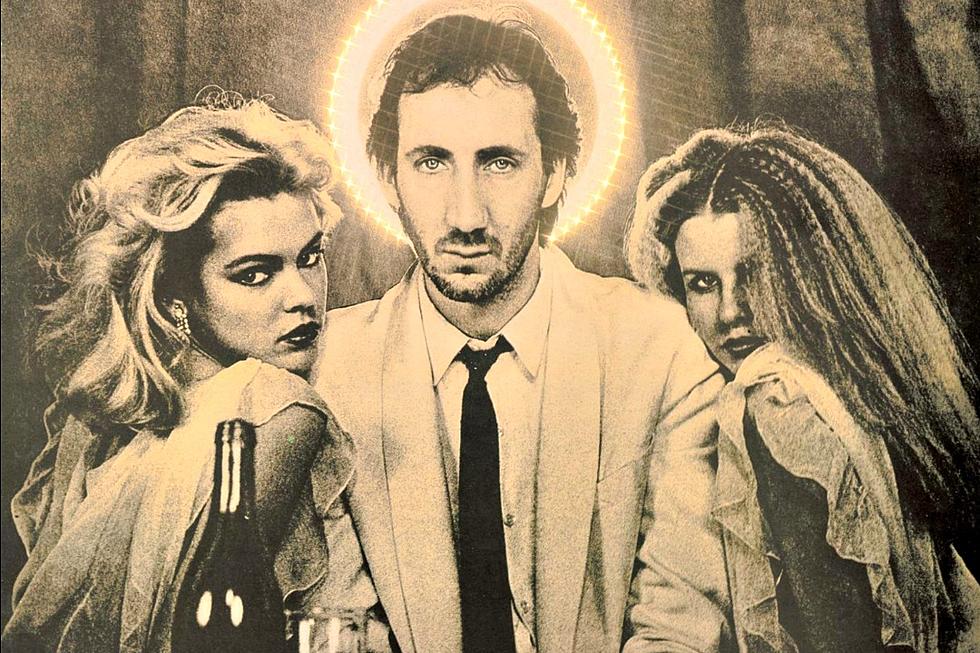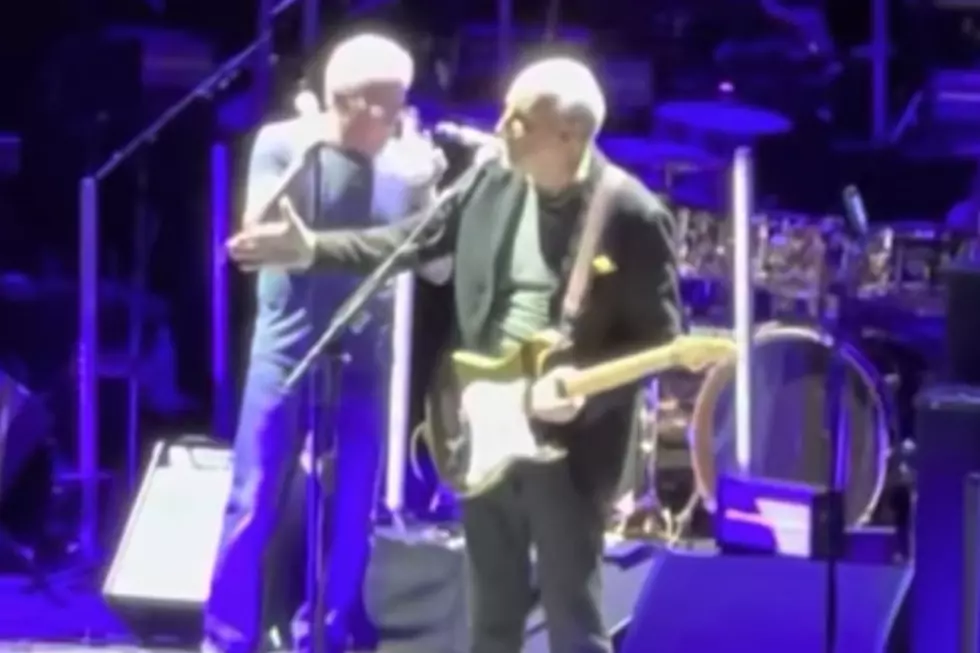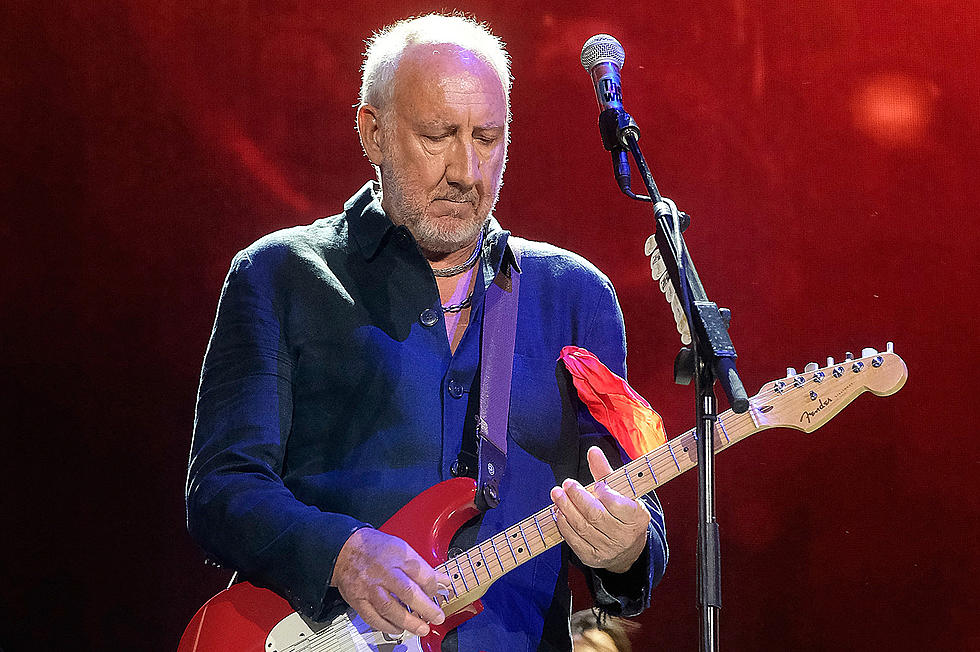
How Pete Townshend Completed His First Proper Solo Album, ‘Empty Glass’
Pete Townshend started experimenting with a recording career outside the Who in the early '70s, but it would take him until 1980 to produce the album he'd later call his official solo debut.
Titled Empty Glass, the record arrived during a tumultuous time for Townshend and his comrades in the Who. Still reeling from the death of drummer Keith Moon in 1978 and slowly working their way back from a period of curtailed touring and decreased activity following their 1976 tour, they were a different band in more ways than one as the '70s waned. As a songwriter and a person, Townshend was going through his own major changes.
"I decided that practically all the personal problems I had – whatever they were, whether it was boozing, or difficulty at home with my family – was because of the Who on the road," he told Rolling Stone. "When we came off the road, I spent two and a half years not touring – under great pressure from the band to tour, but I resisted, and said, 'No, I want to try it and see what happens.' I got to the end of that period, and all my problems were still there. Some of them were worse. But what was strange about that time was that it somehow opened me up: I was able to put a slightly different slant on the qualities that I look for, or that other people look for, in life."
A byproduct of that opening-up period proved to be a batch of songs that edged closer to Townshend's ideal of the type of material that performers his age should be writing — songs that were about more than, as he put it, being "a smashed-up fucker standing at the bar." This was particularly apparent in the title track.
"'Empty Glass' is a direct jump from Persian Sufi poetry," Townshend said. "Hafiz – he was a poet in the 14th century – used to talk about God's love being wine, and that we learn to be intoxicated, and that the heart is like an empty cup. You hold up the heart, and hope that God's grace will fill your cup with his wine. You stand in the tavern, a useless soul waiting for the barman to give you a drink – the barman being God.
"It's also Meher Baba talking about the fact that the heart is like a glass, and that God can't fill it up with his love – if it's already filled with love for yourself," Townshend continued. "I used those images deliberately. It was quite weird going to Germany and talking to people over there about it: 'This 'Empty Glass' – is that about you becoming an alcoholic?'"
The searching feeling Townshend described behind "Empty Glass," as well as its spiritual overtones, were reflected throughout the album. The record's big hit, "Let My Love Open the Door," was his attempt to pen a guileless anthem of unconditional love, while the No. 72 single "A Little Is Enough" dealt with a flash of insight he'd gleaned from a conversation with a secretary to his spiritual guru the Meher Baba.
Listen to Pete Townshend Perform 'Let Me Love Open the Door'
"I tried to get his advice," Townshend wrote on his website. "'My wife doesn't love me anymore,' I said. 'What should I do?' 'She doesn't love you at all?' he wobbled his head as he spoke. 'She said she loved me a little.' 'Ah!' Adi clapped his hands and smiled. 'A little! That's good. Love is universal. Limitless. So even a little is enough.' I wrote a song called 'A Little Is Enough,' and recorded it using the same system as I'd used on 'Let My Love Open the Door.' Although I'd always thought my love songs were terrible, I think this is one of the best songs I've ever written."
Townshend had never shied away from exploring sociopolitical and sexual themes in his work, and that continued on Empty Glass, perhaps most notably on the song "Rough Boys," which serves as a rallying cry for anyone who might feel conflicted, misunderstood or persecuted because of their cultural or gender identity. In the album's liner notes, he wrote that the song was "dedicated to my children Emma and Minta and to the Sex Pistols," which is as good a way as any of summing up a song that can be said to be about homosexuality as much as it's about being true to yourself in the face of resistance.
The album found little resistance on the pop charts, where it soared to No. 5 after its April 21, 1980 release, making it clear that whatever happened with the Who in the future, Townshend had a willing audience for his work outside the band. The record's performance proved telling: Although the Who would soldier on for a couple more years and a pair of new albums (1981's Face Dances and 1982's It's Hard), they'd soon split for the first time. Townshend would spend most of the remainder of the decade focusing on his solo career.
That side of Townshend's discography grew increasingly esoteric over the years, as his quest to stretch rock's thematic boundaries sent him on journeys into concept albums like 1985's White City: A Novel, 1989's Iron Man: The Musical and 1993's Psychoderelict. But he never completely severed the tether to his work with the Who, periodically enlisting his old mates for solo cuts and nodding to their illustrious shared past with a pair of demo compilations (1983's Scoop and 1987's Another Scoop).
More than anything, he insisted on the ability to follow his muse.
"Empty Glass wasn't particularly avant-garde," Townshend admitted in conversation with Paul Du Noyer, "but it was interesting to me because I was able to do the kind of variety of material that the Who used to do, y'know? On our first two albums we did stuff that ranged from comedy songs through tender love ballads to just general insanity. And it's not that I want to get back to quite those extremes, but it is nice not to be bound by limitations."
Pete Townshend Albums Ranked
Why the Who's Drummer Invited Fans to Moon Him
More From 102.9 WBLM










